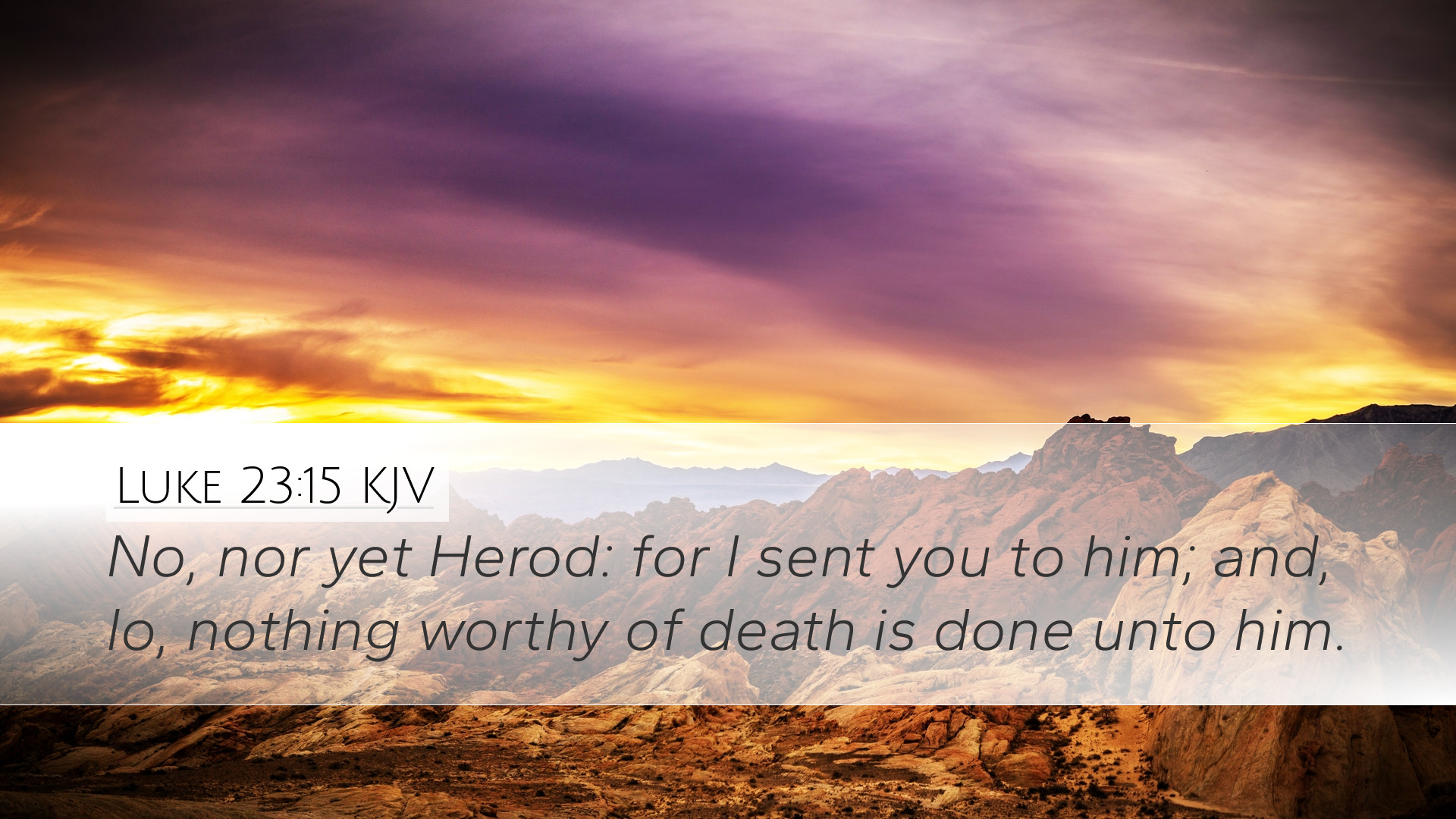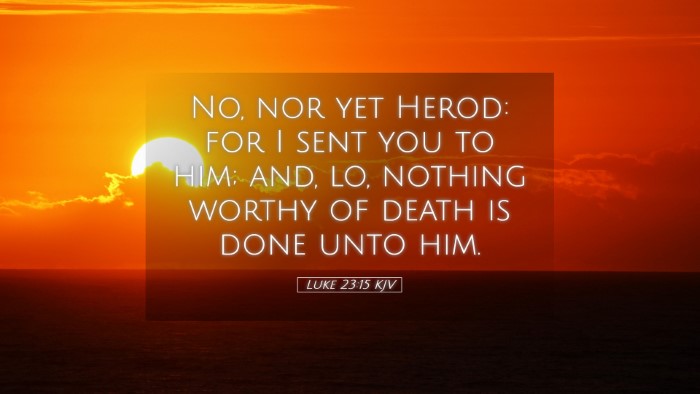Bible Commentary on Luke 23:15
Verse Context: Luke 23:15 states, "No, nor yet Herod: for he sent him back unto us; and, lo, nothing worthy of death is done unto him." This verse is part of the narrative surrounding the trial of Jesus, where He is brought before Pilate and later sent to Herod.
General Insights
This verse highlights the legal proceedings that Jesus faced, emphasizing that both Pilate and Herod found no fault in Him. It serves as a poignant reminder of Jesus's innocence amidst the accusations brought against Him.
Matthew Henry's Perspective
Matthew Henry, in his renowned commentary, emphasizes the judicial irony that both Herod and Pilate, representing earthly authority, are unable to find any just cause for condemnation. He writes:
- Fulfillment of Prophecy: Henry discusses how this moment aligns with Old Testament prophecies foretelling the suffering servant who would be unjustly judged.
- Divine Sovereignty: He beautifully reflects on how God’s providence is at play, orchestrating events toward the ultimate fulfillment of redemption through Christ.
- Human Law and Divine Justice: Henry contrasts the flawed human judicial system with divine justice, noting that even the rulers are perplexed by their findings regarding Jesus's character.
Albert Barnes' Analysis
Albert Barnes offers a careful exposition of this passage, underscoring the political dynamics at play:
- Inter-Political Relations: He discusses the relationship between Pilate and Herod, highlighting that this event served to establish a political bond between them, despite their previous enmity.
- Judicial Examination: Barnes points out that neither ruler had any legitimate grounds to condemn Jesus, which not only illuminates the innocence of Christ but also critiques the superficiality of the charges against Him.
- Herod's Lack of Authority: He notes that Herod’s decision to send Jesus back signifies his recognition of the futility of the charges, while simultaneously avoiding personal responsibility.
Adam Clarke's Commentary
Adam Clarke delves into the cultural and historical context surrounding this scripture:
- Jewish and Roman Law: Clarke explains the legal intricacies of why both Pilate and Herod were involved in Jesus’s trial, shedding light on the collaboration between Jewish authorities and Roman rule.
- Public Perception: He reflects on how Jesus’s apparent powerlessness before His accusers served to fulfill His messianic role rather than incite rebellion.
- Spiritual Implications: Clarke emphasizes that this moment was not merely a political theater but carried deep spiritual implications, as Jesus’s submission to such injustice was integral to His role as the Savior.
Theological Reflections
In light of the insights presented, several theological themes emerge from Luke 23:15:
- The Innocence of Christ: The declaration of innocence by both rulers serves to underscore the uniqueness of Jesus's mission and the gravity of the sins that He bore on behalf of humanity.
- The Failure of Human Justice: This episode reveals the inadequacies of human justice systems, a poignant reminder for contemporary society of the divine call to righteousness and truth.
- Divine Purpose in Suffering: The passage invites believers to consider how suffering and injustice can coexist within God’s overarching plan, and how the innocuous Lamb was led to the slaughter, fulfilling redemptive history.
Application for Today
For pastors, students, theologians, and Bible scholars, Luke 23:15 invites various applications:
- Faithfulness in Trials: Believers are encouraged to remain steadfast amidst trials and injustices, as exemplified by Jesus’s composure and purpose.
- Justice and Advocacy: The vacillation of authority figures urges contemporary Christians to advocate for justice and righteousness in their communities.
- Reflection on Leadership: This passage serves as a challenge for leaders and authorities to pursue truth and integrity in their judgments and decisions.


